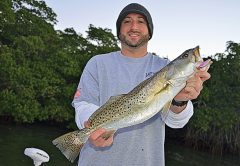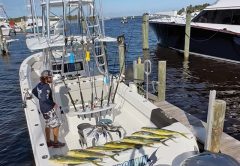UPDATE: On May 25, 2017, NOAA predicted 11 to 17 names storms, 5 to 9 hurricanes, and 2 to 4 major hurricanes of Category 3 strength or higher. According to Gerry Bell, lead seasonal hurricane forecaster for NOAA’s Climate Prediction Center, “There is only a 20 percent chance that the season will be below normal.”
The official 2017 Atlantic hurricane season (June 1-November 30) forecast from Colorado State University calls for the number of named storms and hurricanes to be slightly below historical averages. A total of 11 named storms, 4 hurricanes and 2 major hurricanes are expected this season, but all it takes is one storm to hit, to make it a ‘bad’ year.
Sea Tow Services International, Inc. (www.seatow.com), the nation’s leading marine assistance service provider, offers the following 6 tips from its experienced Coast Guard-licensed Captains on how boaters can prepare for the upcoming hurricane season.
- Remove all detachable items from your boat, such as sails, canvas, cushions, fishing rigging and gear, electronics, and antennas. Lash down everything you cannot remove, including booms, tillers, wheels, etc. Store your dinghy and its outboard motor away from the boat and inside, if possible. Don’t leave important documents like the boat’s registration on board.
- Disconnect the shore power. If your boat is in a slip with shore power, be sure all power is turned off and all shore power cords are stowed securely. This could prevent electrical fires.
- If your boat is on a trailer, lash it down. Use tie-downs to anchor the trailer to the ground, let the air out of its tires, and weigh down the frame.
- If your boat is on a lift, remove it. If possible, store the boat in a less vulnerable location on land.
- If your boat is in a marina, center it in its slip. Double up all dock lines and make sure they are of sufficient length to compensate for extreme high water. Check that the boats docked near yours also are securely double-tied. A boat that breaks loose in a hurricane could wind up damaging your boat and others.
- If your boat is at anchor, put out extra scope. Inspect all anchor ropes and chain and use only good or new gear. Set extra anchors as necessary.
The most important advice is to resist the urge to stay with your boat or try to ride out a storm on board. No matter how valuable your vessel may be to you, it’s not worth risking your life.





